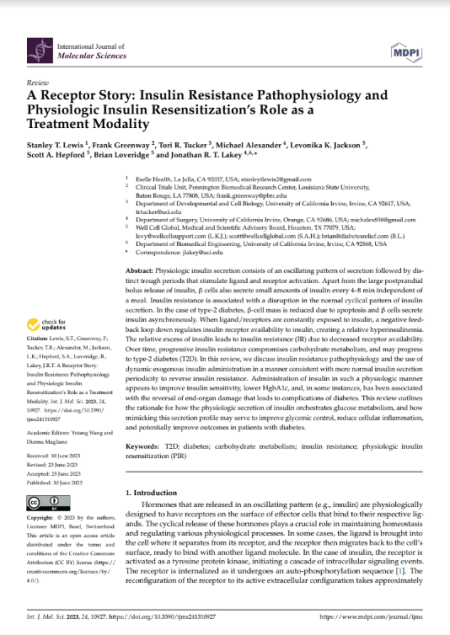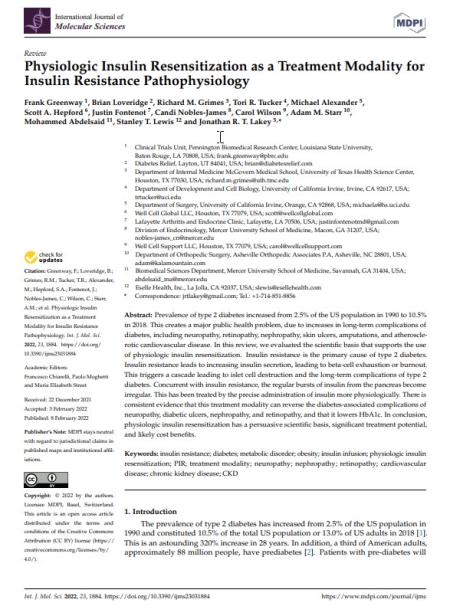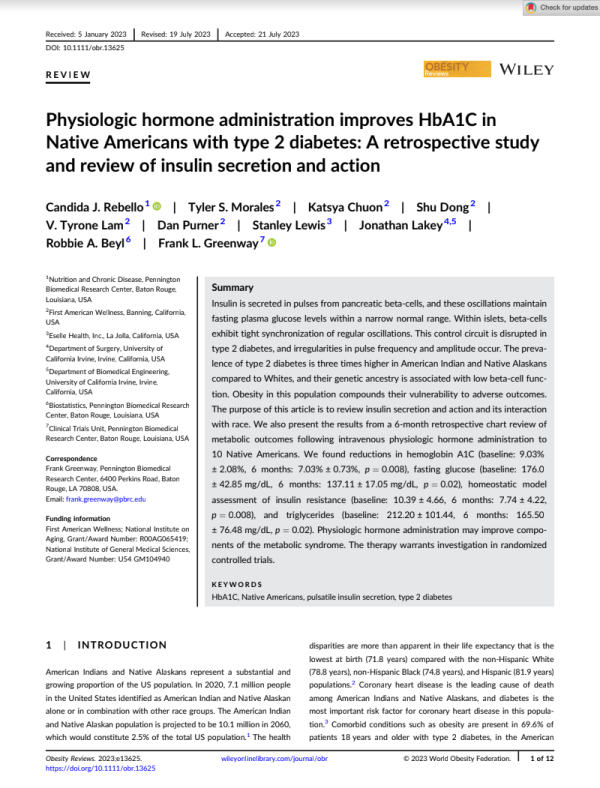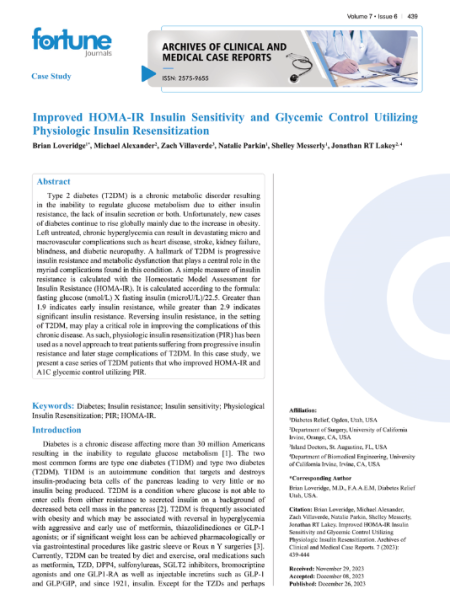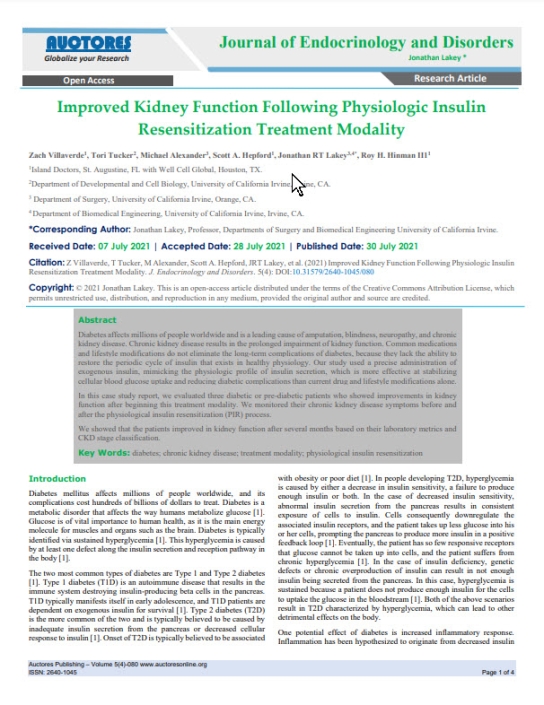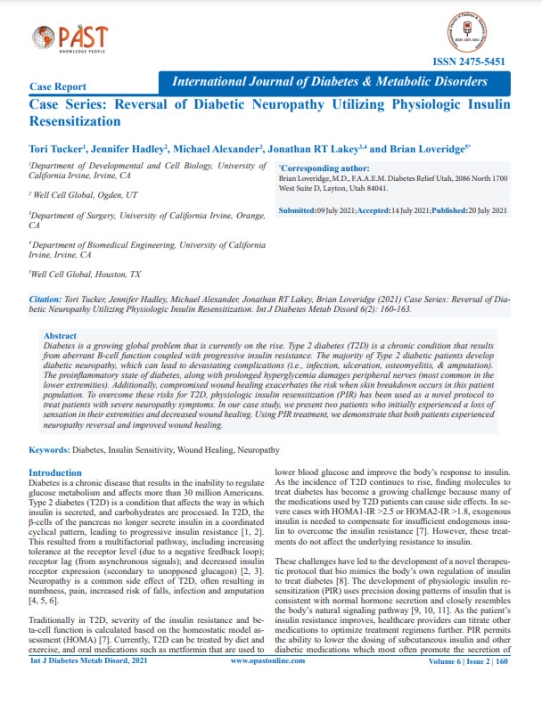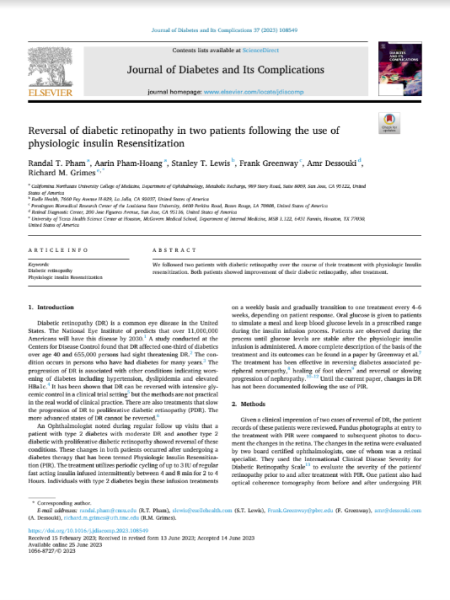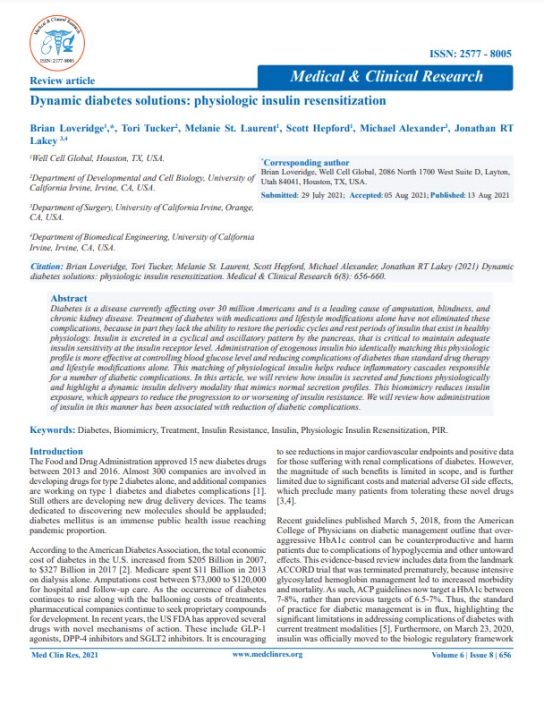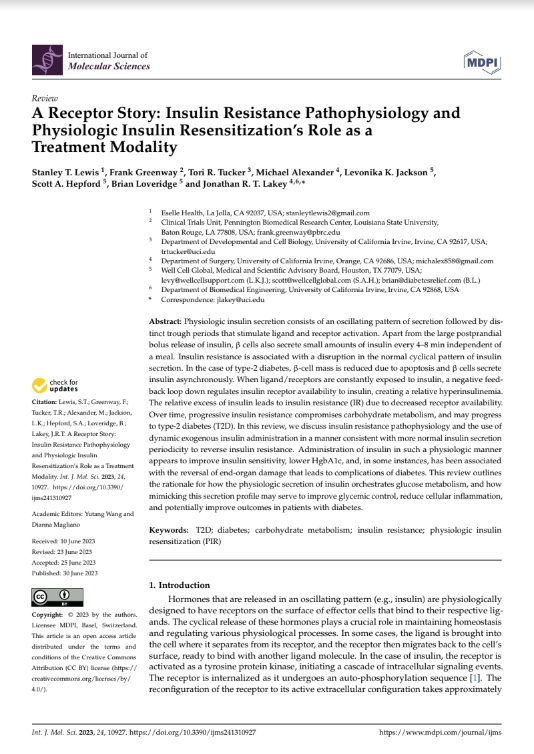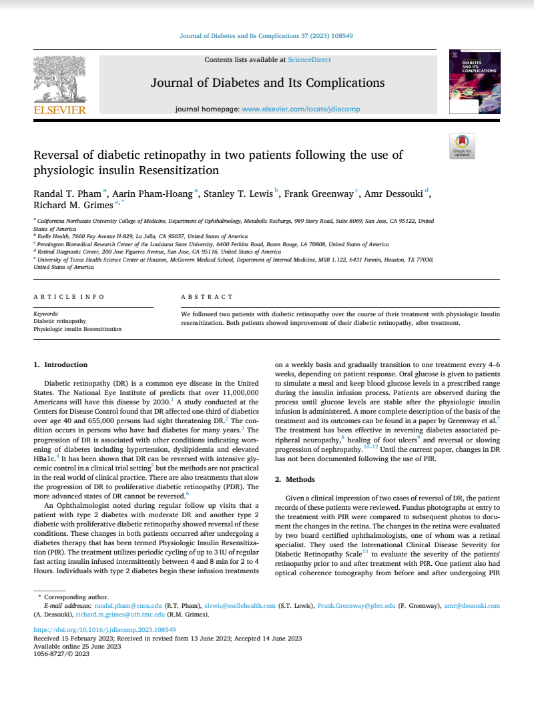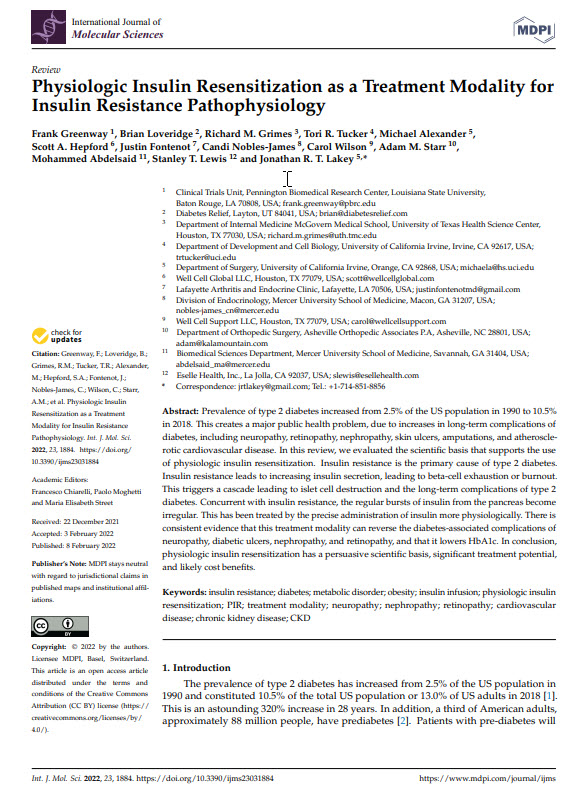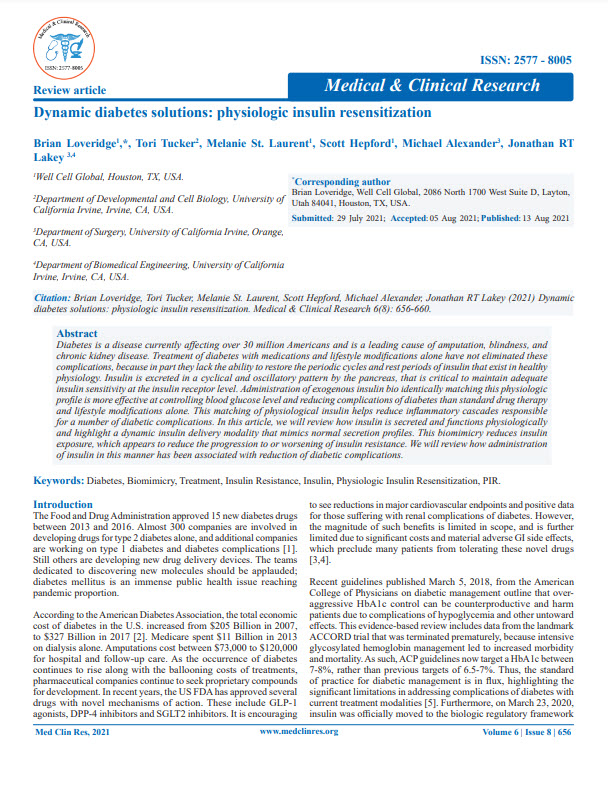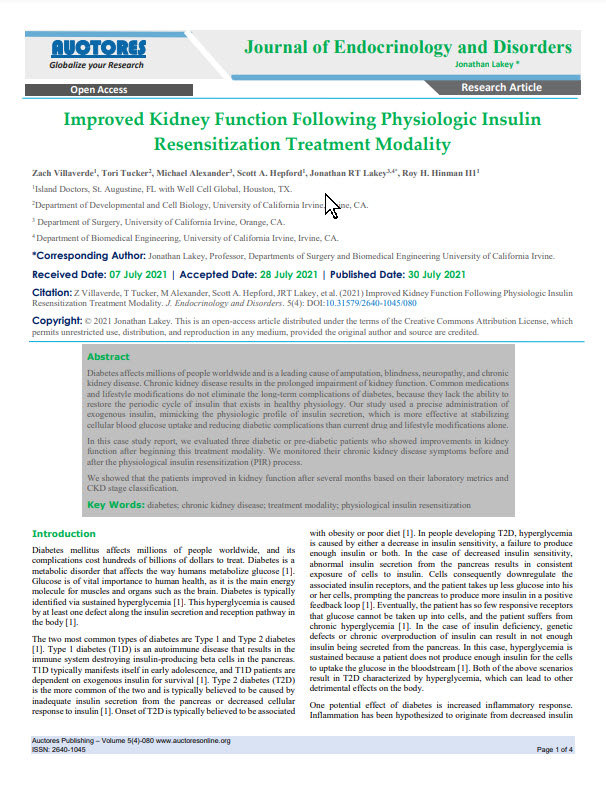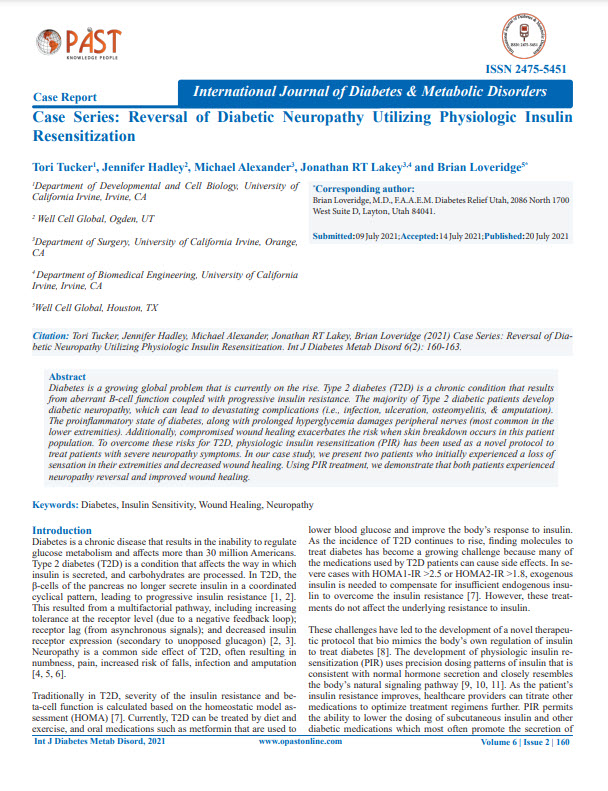Research
Recent Publications
A Receptor Story: Insulin Resistance Pathophysiology and Physiologic Insulin Resensitization’s Role as a Treatment Modality
Physiologic hormone administration improves HbA1C in Native Americans with type 2 diabetes: A retrospective study and review of insulin secretion and action
Case Series: Reversal of Diabetic Retinopathy in two Patients Following the use of Physiologic Insulin Resensitization
Improved HOMA-IR Insulin Sensitivity and Glycemic Control Utilizing Physiologic Insulin Resensitization
Improved HOMA-IR Insulin Sensitivity and Glycemic Control Utilizing Physiologic Insulin Resensitization
A Receptor Story: Insulin Resistance Pathophysiology and Physiologic Insulin Resensitization’s Role as a Treatment Modality
Reversal of Diabetic Retinopathy in two Patients Following the use of Physiologic Insulin Resensitization
Other Publications
“Economic Costs of Diabetes in the U.S. 2017” (Published online in Diabetes Care Mar, 2018)
Per Brian Loveridge, MD; “Diabetes represents the most expensive medical condition in America. The prevalence continues to rise, with one out of two adults having either diabetes or pre-diabetes. Greater focus and attention is needed to address the complications of this epidemic that plagues both the U.S., and the world at large. We want to be a part of the solution with our physiologic insulin treatments.”

